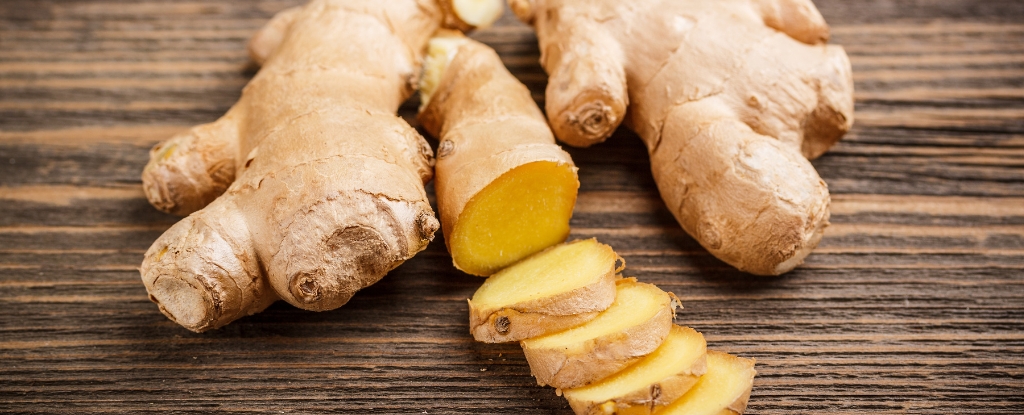
Ginger, known scientifically as Zingiber officinale, is not just a popular ingredient in various cuisines; it is also gaining recognition for its health benefits supported by scientific research. Recent studies indicate that ginger may help alleviate nausea, reduce inflammation, and support heart health, among other advantages. This expanding body of evidence underscores ginger’s potential as a natural remedy.
Nausea Relief
Multiple clinical trials have demonstrated that ginger can significantly reduce nausea and vomiting, particularly in pregnant women. The National Health Service (NHS) recommends ginger-based foods and teas for managing these symptoms. Research indicates that ginger may be particularly effective for those experiencing nausea from chemotherapy, although its efficacy for motion sickness remains less consistent. Experts believe that ginger acts on serotonin receptors and influences both the gut and brain, potentially alleviating gas and bloating.
Anti-Inflammatory Properties
Ginger is rich in bioactive compounds such as gingerol and shogaol, known for their antioxidant and anti-inflammatory effects. A 2022 study found that ginger supplementation can help regulate inflammation, particularly in autoimmune diseases like lupus and rheumatoid arthritis. Participants who consumed ginger daily for a week experienced a notable decrease in the activity of neutrophils, which are white blood cells that can become overactive in autoimmune conditions. While the study focused on ginger supplements, further research is necessary to determine if fresh ginger or tea could produce similar effects.
Additionally, ginger possesses antimicrobial properties, making it a popular remedy for alleviating cold and flu symptoms.
Pain Management
Research into ginger’s pain-relieving properties shows promise, particularly for osteoarthritis and muscle soreness. Some studies indicate that ginger extract may reduce knee pain and stiffness during early treatment stages. A separate study revealed that consuming two grams of ginger daily for 11 days decreased post-exercise muscle soreness. Furthermore, ginger may be effective for menstrual pain, potentially rivaling over-the-counter non-steroidal anti-inflammatory drugs like ibuprofen. Researchers suggest that ginger may activate pathways in the nervous system that help to diminish pain signals.
Support for Heart Health and Diabetes
Ginger appears to have a positive impact on various risk factors associated with heart disease, including high blood pressure and elevated cholesterol levels. A comprehensive review of 26 clinical trials noted that ginger supplementation significantly improved cholesterol levels, leading to lower triglycerides, total cholesterol, and low-density lipoprotein (LDL) cholesterol, while increasing high-density lipoprotein (HDL) cholesterol. For individuals with type 2 diabetes, ginger may enhance blood sugar control. Research indicates that daily intake of one to three grams over four to twelve weeks resulted in improved cholesterol levels and blood sugar regulation.
Ginger’s heart-protective effects may stem from improved insulin sensitivity and reduced oxidative stress, which are crucial for cardiovascular health.
Potential Benefits for Brain Health and Cancer
Emerging studies suggest that ginger may also provide neuroprotective benefits. Laboratory research indicates that ginger compounds can safeguard brain cells from oxidative damage, a significant factor in neurodegenerative diseases such as Alzheimer’s. Additionally, some studies have pointed to ginger’s potential to slow the growth of certain cancer cells, although these findings are still preliminary. More extensive research is needed to establish the relevance of these results in human populations.
While ginger is generally safe for consumption in food or tea, moderation is advised. Doses exceeding four grams per day may lead to side effects like heartburn or bloating. Individuals on blood thinners or medications for diabetes and blood pressure should consult healthcare providers before significantly increasing ginger intake.
Overall, ginger is more than just a flavorful spice; it is a natural remedy gaining scientific credibility for its health benefits. Incorporating ginger into meals or beverages is a safe way to harness its therapeutic potential. Those considering ginger supplements should consult medical professionals, especially if they have underlying health conditions or are taking medications.
This information has been provided by Dipa Kamdar, Senior Lecturer in Pharmacy Practice at Kingston University, and is republished from The Conversation under a Creative Commons license.






